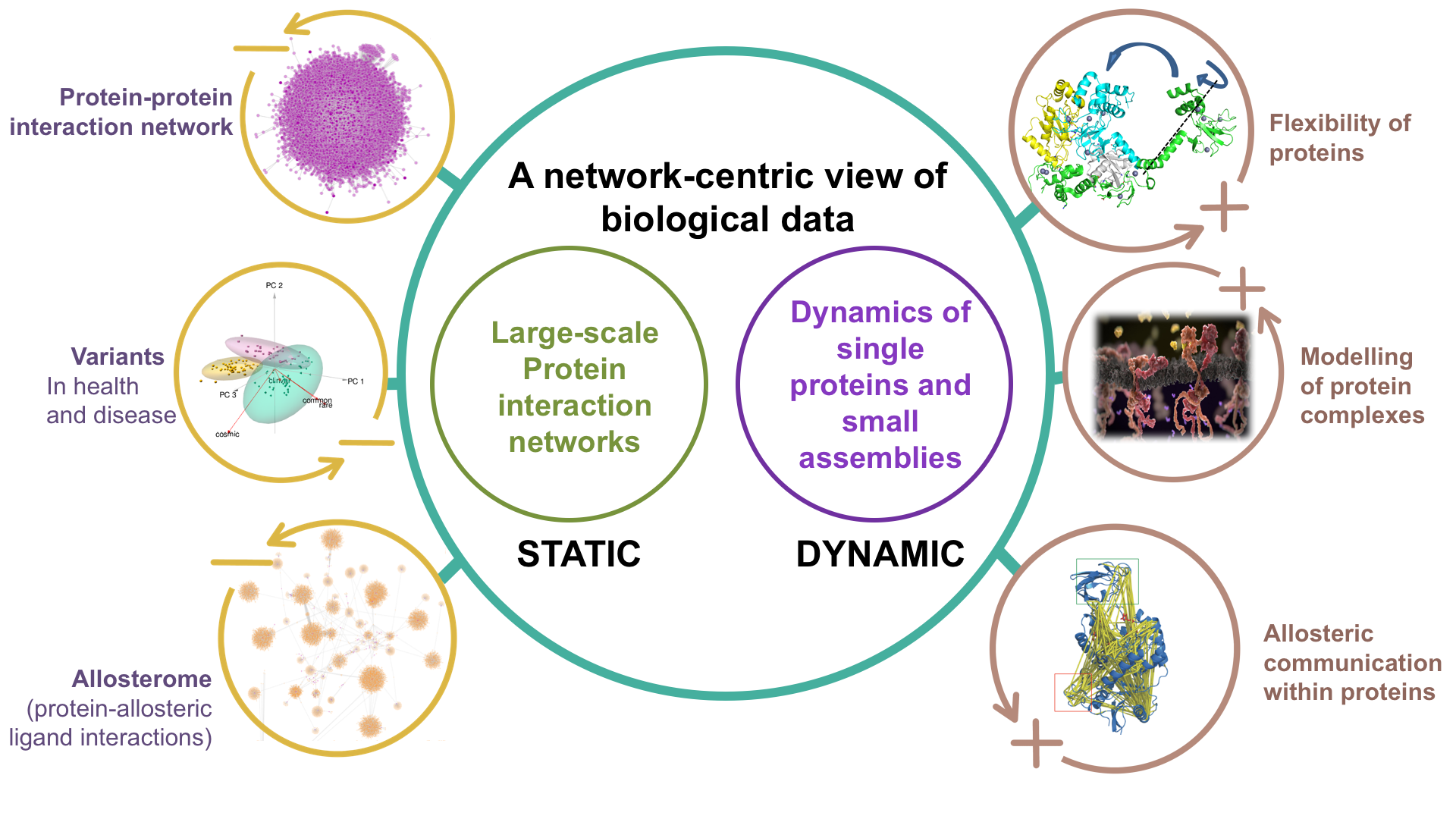Research
The Fraternali Group
Group Leader: Franca Fraternali, Professor in Bioinformatics and Computational Biology

The group research aims are in the identification of the molecular determinants in the functioning or mis-functioning of protein structures and protein-protein interactions. The wider objective is to understand, at a molecular level, the nature of the interactions occurring in the cell.
We use bioinformatics methods to analyse available data on protein structures and protein interactions, and molecular simulations and/or computational biology methods to characterize and determine their stability.
The group develops computational methods and large-scale data analysis tools and applies these in fields such as Structural Biology of Proteins and Nucleic acids; Systems Biology; Protein Structure Prediction; Molecular Dynamics of folded and misfolded proteins; Statistical Analysis of Protein Interaction Networks.
A number of projects in the group integrate protein structural information with Protein-Protein Interaction Networks (PPIN)s to perform large scale studies to uncover observed cellular mechanism and the role of protein complexes in these. One of the major interests in these analyses is to investigate how disease-related mutations may disrupt protein functions and lead to a pathogenic phenotype. These effects can be mediated by alterations of the protein stability induced by the mutation and specific associated molecular signatures. Once these signatures have been identified, one can propose ‘rescue’ mutants to restore the protein function; one can design proteins with enhanced binding; one can design inhibitors to disrupt the binding.
We also focus on interactions between proteins that lead to misfolding and aggregation like the Prion protein. We use molecular simulations and we perform multiscale simulations of the assembly process in-silico and compare the data with experimental studies on the kinetics of oligomers formation. We have a strong and long-standing interest in the role of water at the surface of proteins and in the modelling of solvent in simulations.
Go to the People tab to read more about members of the Fraternali group.